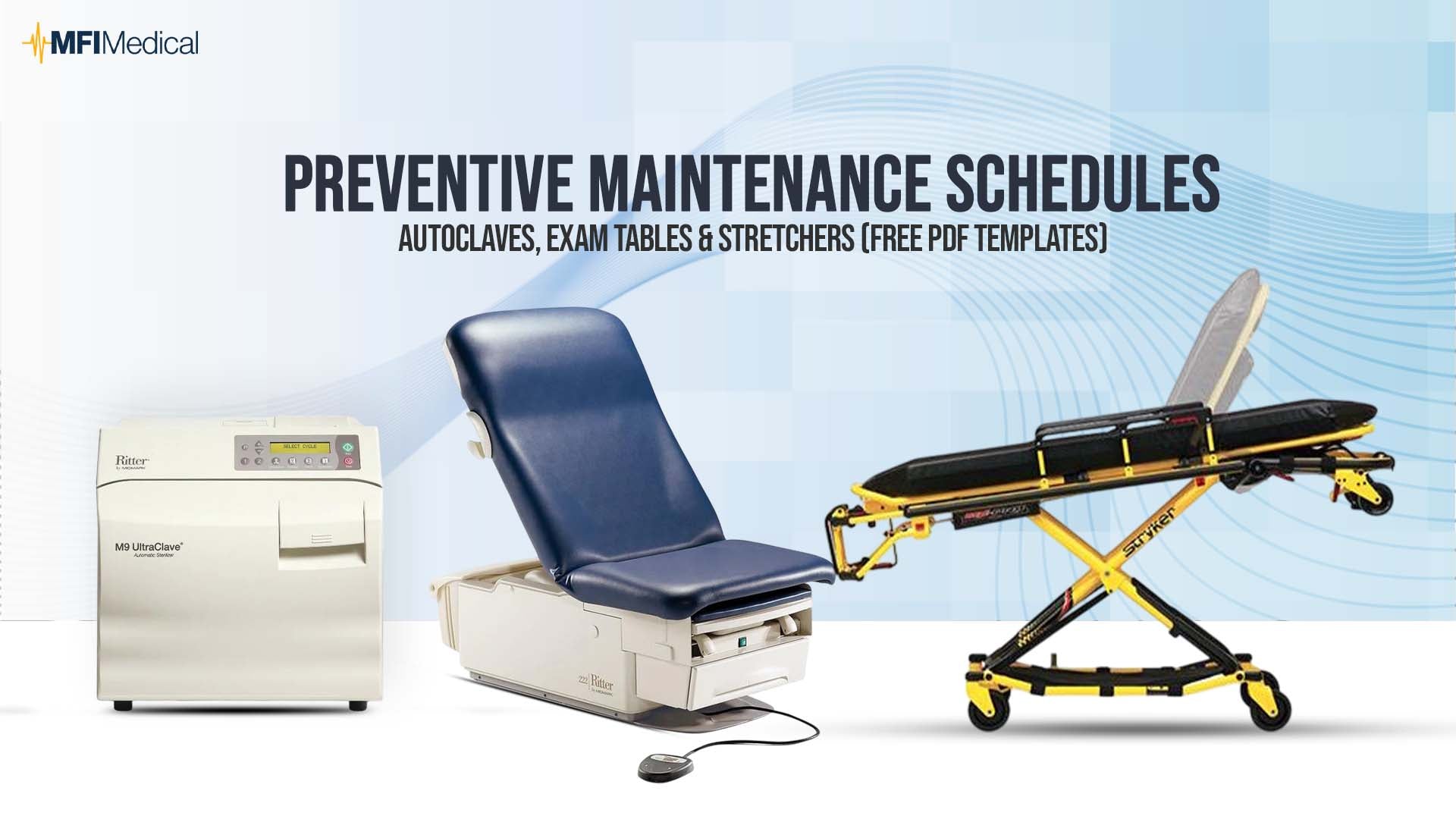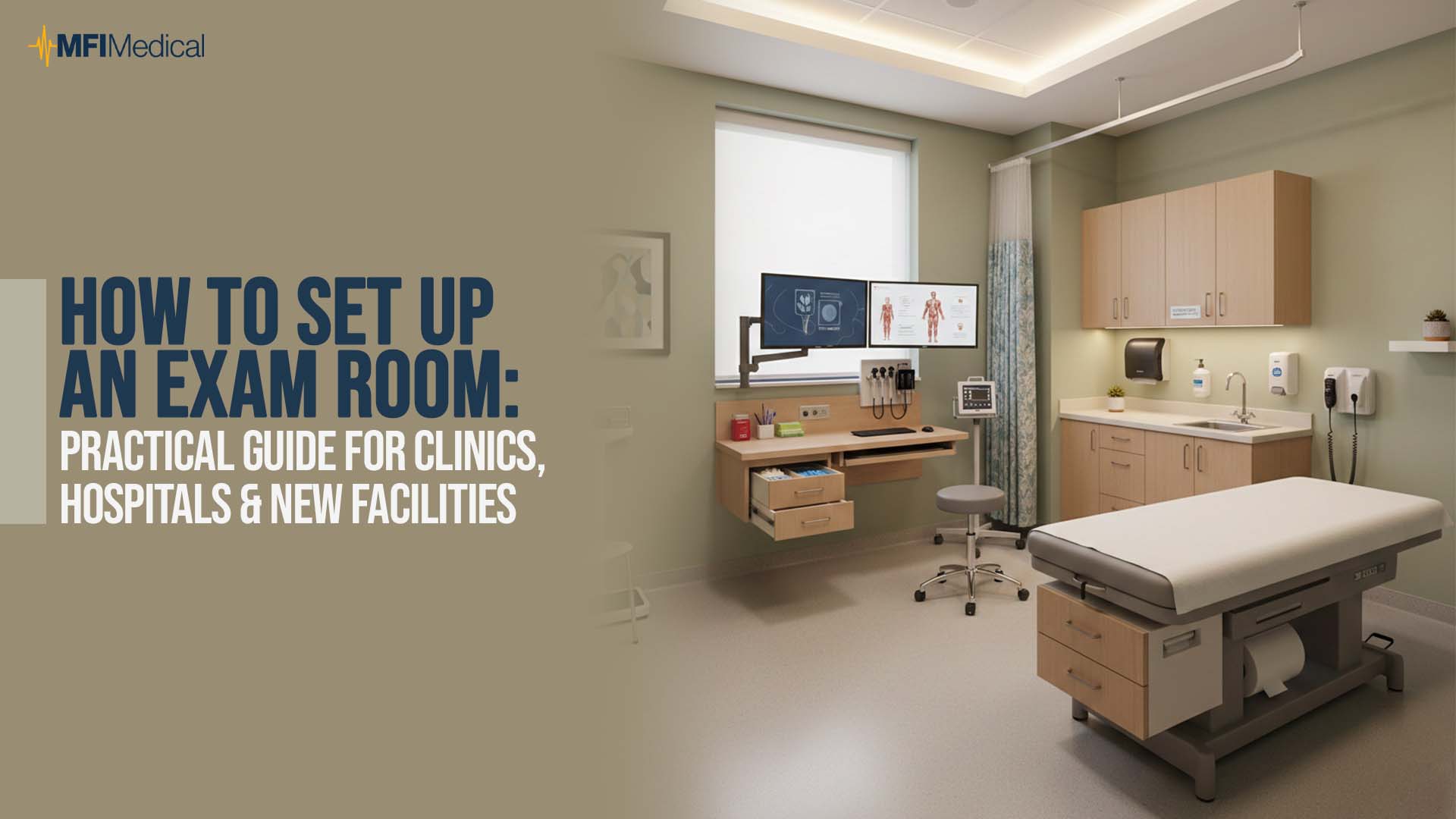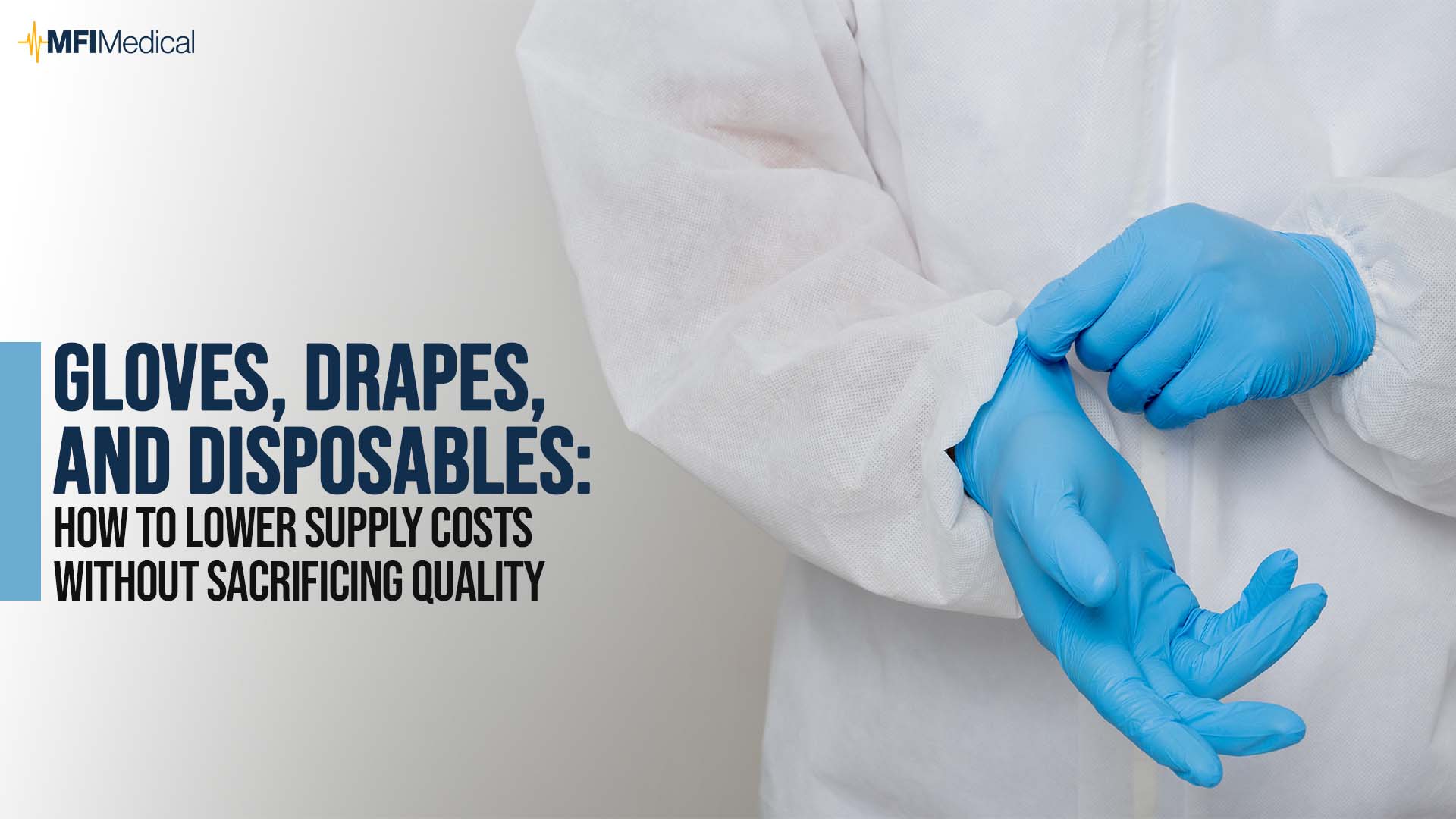A strong and reliable supply chain is the backbone of any healthcare organization. Hospitals and clinics can make their supply chains more efficient by improving how they forecast demand, manage inventory, and use modern technology.
By adopting advanced data analytics, strengthening relationships with suppliers, and adding automation where it makes sense, healthcare providers can reduce costs, avoid shortages, and ensure critical medical supplies reach patients when they’re needed most.
During the COVID-19 pandemic, everyone saw how a broken supply chain can hurt patient care. And even now, in 2025, many hospitals and clinics still struggle with supply chain issues.
At MFI Medical, we work closely with healthcare providers to help fix these problems with better tools, training, and smarter strategies.
In this blog, let’s talk about the real challenges in Healthcare Supply Chain Management and what you can do to make your supply chain more reliable, flexible, and efficient.
What Is Healthcare Supply Chain Management?
In simple words, healthcare supply chain management is about getting the right medical products to the right place at the right time. It covers everything from ordering gloves and masks to maintaining large equipment like MRI machines.
A good supply chain helps hospitals run smoothly, keeps costs down, and most importantly, protects patients and staff.
Why Supply Chains Still Have Problems
Even today, many healthcare providers face daily supply chain challenges. Let’s look at why this happens and what it means.
Limited Visibility
Many hospitals can’t see exactly what’s in stock, where products are coming from, or when shipments will arrive. This happens because systems don’t share data. As a result, some items expire on the shelf, while others run out completely.
Relying on a Few Suppliers
It might seem cheaper to buy most things from one large vendor overseas. But when there are shipping delays, factory shutdowns, or trade restrictions, hospitals can end up with empty shelves.
Outdated Inventory Systems
Some clinics still use spreadsheets or paper to track supplies. This can easily lead to over-ordering items you don’t need or missing what you do need.
Trouble with Recalls and Fake Products
When a product recall happens, it’s hard to track where those products were used if there’s no good batch tracking. Counterfeit items can also slip into the supply chain if systems aren’t secure.
Stiff Contracts
Many hospitals sign long contracts to get lower prices. But if demand suddenly changes—like during flu season—it’s hard to buy extra supplies quickly.
Cybersecurity Risks
As hospitals use more digital systems, cyber threats increase. Hackers can interrupt orders, steal data, or even shut down systems.
Rules and Regulations
Healthcare supply chains must follow strict rules from the FDA and other agencies. Missing paperwork or changing rules can delay products.
Staff Shortages
It’s not easy to find and keep skilled warehouse and supply chain staff. Shortages lead to delays and mistakes.
Old Technology
Even in 2025, some hospitals use outdated systems or manual processes. This slows things down and makes scaling harder.
No Disaster Plan
COVID-19 showed that many hospitals weren’t ready for sudden demand spikes. Without a plan, they can face shortages again during natural disasters or new pandemics.
How These Problems Affect Patients and Staff
When supply chains don’t work well, the impact is real:
-
Shortages of PPE put nurses and doctors at risk.
-
Missing parts delay repairs on life-saving equipment.
-
Late delivery of medicines affects treatment.
-
Data errors can cause wrong billing or reordering issues.
That’s why a reliable supply chain isn’t just about saving money—it’s about saving lives.
What Hospitals and Clinics Can Do
The good news is, there are clear, practical steps that healthcare providers can take to improve Healthcare Supply Chain Management.
Use Better Tools for Visibility
Modern tools like RFID tags or AI software can show what’s in stock in real time. This helps plan better and avoid waste.
Work with More Suppliers
By having a mix of local and international suppliers, hospitals can avoid big problems if one vendor can’t deliver.
Make Contracts Flexible
Instead of only signing long contracts for the lowest price, hospitals can build in clauses to buy extra supplies quickly during emergencies.
Train Your Teams
Staff who know supply chain best practices make fewer mistakes and work more efficiently.
Connect Your Systems
Linking inventory, procurement, and clinical systems helps share data. This means fewer manual entries and more accurate orders.
How MFI Medical Helps
At MFI Medical, we don’t just sell medical equipment and supplies. We also help hospitals and clinics make their supply chains smarter and faster.
Punchout Integration
Many healthcare providers use systems like Coupa, Ariba, Jaggaer, Oracle, and Workday to manage buying. With our Punchout catalog, staff can shop from MFI Medical directly inside these systems. They see real-time product availability and prices. This saves time and reduces errors because they don’t need to re-enter data.
EDI Integration
Electronic Data Interchange (EDI) makes ordering even easier. Instead of sending paper orders or emails, systems can talk to each other directly.
This means:

We partner with trusted companies like GHX and SPS Commerce. This lets us connect with almost any EDI or ERP system a hospital uses.
Whether you run a small clinic or a large hospital network, these tools help save time and reduce mistakes.
Real Benefits of Modern Supply Chains
When hospitals invest in better supply chain tools and training, they see real improvements:
-
Fewer stockouts of critical items
-
Less wasted money on expired stock
-
Faster repairs for equipment
-
Safer patient care
-
Lower admin costs and paperwork
-
Happier staff who spend less time chasing missing items
All of this helps hospitals stay ready for everyday care and unexpected emergencies.
Why Flexibility Matters
In healthcare, things can change overnight. New diseases, natural disasters, or local emergencies can suddenly increase demand for certain products.
That’s why it’s so important not just to focus on price, but also on being able to react quickly. Hospitals that build flexibility into contracts and work with multiple suppliers are better prepared when the unexpected happens.
The Role of Staff and Training
Even the best systems won’t help if staff don’t know how to use them. Investing in staff training makes a big difference.
When staff understand how to use new tools, read reports, and spot problems early, the supply chain runs smoother.
Keeping Data Secure
More digital tools mean more risk of cyberattacks. Hospitals need to keep systems updated, train staff to spot phishing emails, and choose partners with strong security practices.
At MFI Medical, we take data security seriously. Our integrations are built to protect your information and keep operations running safely.
Staying Compliant
Rules and regulations can feel overwhelming, but they’re there to protect patients. By keeping documents organized and staying up to date with changes, hospitals can avoid delays and fines.
Using digital systems helps track documents and makes audits easier.
Looking Ahead
The COVID-19 pandemic taught everyone how fragile healthcare supply chains can be. But it also pushed many hospitals to modernize.
In 2025 and beyond, successful hospitals will keep improving:

How MFI Medical Supports You
At MFI Medical, we want to help healthcare providers build supply chains that are:
-
Faster
-
Safer
-
Flexible
-
And ready for anything
Through tools like Punchout and EDI integration, we make ordering simpler. Our large catalog of medical equipment and supplies helps keep hospitals stocked and ready.
We work with small clinics, large hospital networks, and everything in between. No matter your size, we can help you find a solution that fits your workflow.
Final Thoughts
Good Healthcare Supply Chain Management isn’t just about saving money. It’s about protecting staff, keeping equipment running, and most importantly, taking better care of patients.
By investing in better tools, smarter strategies, and staff training, hospitals and clinics can build supply chains that handle everyday needs and unexpected challenges.
At MFI Medical, we’re proud to be part of that journey.
Ready to Improve Your Supply Chain?
If your hospital or clinic wants to simplify buying, reduce manual work, and keep shelves stocked, we’re here to help.
Visit MFI Medicals to explore our full range of medical equipment and supplies, or contact us to learn more about our Punchout and EDI integrations.
Together, we can build a smarter, safer supply chain, so your teams can focus on what matters most: caring for patients.




